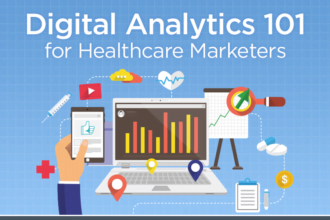This week we learned from the Centers for Disease Control and Prevention about the first case of MERS (Middle East Respiratory Syndrome) that appears to have been transmitted from one person to another within the United States. Even more concerning is the fact that this most recent case was transmitted between two people who only had face-to-face business contact with each other.
This week we learned from the Centers for Disease Control and Prevention about the first case of MERS (Middle East Respiratory Syndrome) that appears to have been transmitted from one person to another within the United States. Even more concerning is the fact that this most recent case was transmitted between two people who only had face-to-face business contact with each other. Previously, experts believed that MERS was primarily a risk for those who had prolonged contact with an infected individual such as might occur between people living together or hospital staff caring for patients with MERS. Fortunately, the man infected in this latest case never experienced much in the way of symptoms. However, the man he caught it from wasn’t so fortunate. That man was hospitalized at Community Hospital in Munster, Indiana, where he continues to improve.
Worldwide there have now been more than 570 confirmed cases of the illness and 171 deaths. Cases of MERS have been identified in 18 countries, leading the World Health Organization to caution that the spread of MERS is becoming more serious and urgent.
So, what happens if a patient with MERS ends up in your hospital? Are you prepared to protect your staff and other patients? Well, that’s exactly what confronted administrators at Community Hospital in Munster. Lucky for them, the hospital was using a RFID tracking solution from Microsoft partner, Versus Technology.
 I first told you about the good work of Versus Technology back in January of 2011. On HealthBlog and on our on-line video series, Health Tech Today, we discussed how Real Time Location Services (RTLS) technology from Versus was being used to streamline clinical workflow. Their solution combines radio frequency identification (RFID) and infrared (IR) tracking of badges and tags to identify people and equipment. The location and status of all tagged staff and equipment can be monitored on computer screens. Rules-based automation is continuously applied to improve clinical workflow and productivity while reducing patient wait times.
I first told you about the good work of Versus Technology back in January of 2011. On HealthBlog and on our on-line video series, Health Tech Today, we discussed how Real Time Location Services (RTLS) technology from Versus was being used to streamline clinical workflow. Their solution combines radio frequency identification (RFID) and infrared (IR) tracking of badges and tags to identify people and equipment. The location and status of all tagged staff and equipment can be monitored on computer screens. Rules-based automation is continuously applied to improve clinical workflow and productivity while reducing patient wait times.
 Since I last reported on this topic, Versus Technology has continued to innovate and win customers around the country. One of those customers it turns out, is Community Hospital in Munster, Indiana. Yes, that same hospital with the identified and admitted MERS case. Because all hospital staff were wearing Versus RLTS badges, management didn’t have to guess about who had come in contact with the contagious patient. Thanks to RTLS technology from Versus and other tools, it was possible for managers at Community Hospital to know down to the second which staff members had had contact with the MERS infected patient and for how long. With Versus, interactions between all badge-wearing people (patients, staff, visitors, etc.) and tagged equipment are automatically recorded. By using reports generated by a facility’s integrated nurse call system or advanced Exposure Control reports from special analytics software, a facility like Community Hospital can know immediately who, and even what equipment, has been exposed to a contagious patient and to what degree. Such knowledge is essential in determining necessary isolation and monitoring of exposed staff, as well as special cleaning of contaminated equipment. You can learn more here.
Since I last reported on this topic, Versus Technology has continued to innovate and win customers around the country. One of those customers it turns out, is Community Hospital in Munster, Indiana. Yes, that same hospital with the identified and admitted MERS case. Because all hospital staff were wearing Versus RLTS badges, management didn’t have to guess about who had come in contact with the contagious patient. Thanks to RTLS technology from Versus and other tools, it was possible for managers at Community Hospital to know down to the second which staff members had had contact with the MERS infected patient and for how long. With Versus, interactions between all badge-wearing people (patients, staff, visitors, etc.) and tagged equipment are automatically recorded. By using reports generated by a facility’s integrated nurse call system or advanced Exposure Control reports from special analytics software, a facility like Community Hospital can know immediately who, and even what equipment, has been exposed to a contagious patient and to what degree. Such knowledge is essential in determining necessary isolation and monitoring of exposed staff, as well as special cleaning of contaminated equipment. You can learn more here.
This is but one more example of how information communication technology is being used to improve the quality and safety of patient care in hospitals and health facilities around the world. Whether it is MERS today, or another even more dangerous infectious disease down the line, it is comforting to know that technology is making it easier to identify, contain and control whatever might come our way next.





